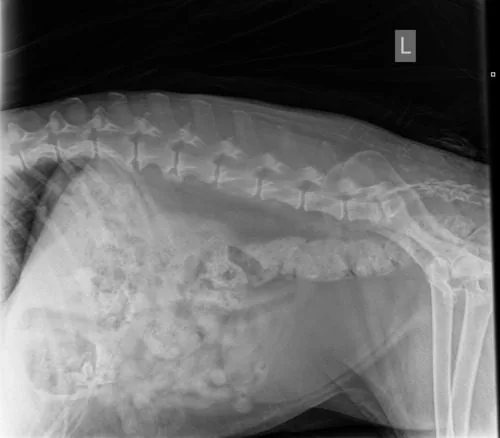Is Your Dog Dizzy? Understanding Vestibular Syndrome in Dogs and How to Manage It
If your dog suddenly begins stumbling, tilting their head, or circling in one direction, it can be alarming. These signs often appear without warning and can make it seem like your dog has suffered a stroke. One possible explanation is vestibular syndrome in dogs, a condition that affects the body’s balance system. While it can look severe, many dogs recover well with appropriate veterinary care. This blog explains what vestibular syndrome in dogs looks like, what causes it, and how it’s diagnosed and managed. If you notice any signs of disorientation in your pet, call Veterinary Healthcare Associates in Winter Haven, FL at (863) 324-3340.

What Is Vestibular Syndrome in Dogs?
Vestibular syndrome in dogs refers to a disruption in the vestibular system, which controls balance and spatial orientation. This system includes parts of the brain and inner ear that help your dog stand, walk, and keep their head upright. When something goes wrong in this system, the result is often a sudden onset of symptoms like dizziness, unsteadiness, and head tilting.
Vestibular syndrome in dogs is sometimes called “canine idiopathic vestibular disease” when the exact cause is unknown. The condition may affect any breed, but older dogs tend to be more commonly diagnosed. Though the symptoms may resemble a more serious neurological issue, vestibular syndrome in dogs is often less dangerous than it appears, especially with prompt veterinary support.
Recognizing the Signs of Vestibular Syndrome in Dogs
The symptoms of vestibular syndrome in dogs are usually sudden and dramatic. Many pet owners worry their dog has had a stroke, and the appearance can be very similar at first glance. Fortunately, strokes are relatively rare in dogs compared to this condition. Common signs of vestibular syndrome in dogs include:
- Head tilt to one side
- Loss of balance or falling
- Circling in one direction
- Nystagmus (rapid eye movement from side to side or up and down)
- Vomiting due to dizziness
- Reluctance to stand or walk
- Incoordination (ataxia)
Dogs with vestibular syndrome may also appear anxious or confused, which is understandable given the disorienting nature of the condition. They may struggle to eat or drink normally and may need support when going outside for bathroom breaks.
Causes of Vestibular Syndrome in Dogs
There are several potential causes of vestibular syndrome in dogs. Identifying the cause helps determine whether treatment is necessary and what kind of follow-up may be required.
Peripheral vs. Central Vestibular Disease
Vestibular syndrome in dogs can be categorized as either peripheral (affecting the inner ear) or central (affecting the brainstem or cerebellum). Peripheral vestibular disease is far more common and usually less serious, while central vestibular disease can indicate more severe underlying issues.
Common Causes Include:
- Idiopathic vestibular disease: Most commonly diagnosed in senior dogs, this form has no identifiable cause but often resolves on its own with time and supportive care.
- Ear infections: Bacterial infections in the middle or inner ear can disrupt balance and trigger vestibular symptoms.
- Trauma: Injury to the head or ear can lead to sudden vestibular dysfunction.
- Tumors: Growths affecting the ear canal or brain can interfere with the vestibular system.
- Hypothyroidism: Hormonal imbalances may contribute to neurological changes.
- Toxicity: Exposure to certain medications or toxins, including ear cleaning solutions, can damage the inner ear or nerves.
Pinpointing the cause helps guide treatment, especially if the condition is linked to an infection, mass, or metabolic disorder.
How Is Vestibular Syndrome in Dogs Diagnosed?
Diagnosing vestibular syndrome in dogs begins with a thorough physical exam and review of your dog’s history. Your veterinarian will evaluate neurological function, check the ears for signs of infection, and assess overall health to determine the most likely cause.
Diagnostic Tools
- Ear examination using an otoscope
- Bloodwork to rule out metabolic issues
- Neurological evaluation to distinguish between peripheral and central disease
- Imaging tests such as X-rays, CT scans, or MRI if a brain lesion or tumor is suspected
In many idiopathic cases, especially in older dogs, advanced imaging may not be necessary unless symptoms worsen or fail to improve.
Managing Vestibular Syndrome in Dogs
The treatment for vestibular syndrome in dogs depends on the underlying cause and severity of the symptoms. Many dogs improve significantly within a few days, especially with supportive care.
Supportive Care for Idiopathic Cases
When no underlying cause is found (idiopathic vestibular disease), treatment typically focuses on helping the dog remain comfortable and safe while symptoms resolve. Supportive care may include:
- Keeping the dog confined to prevent injury
- Providing non-slip surfaces to help with footing
- Hand-feeding or assisting with meals
- Offering water in an accessible location
- Anti-nausea medication if vomiting is present
Recovery often begins within 48 to 72 hours, though some dogs may take a few weeks to return fully to normal.
Medical Treatment for Underlying Conditions
If an infection or another medical condition causes vestibular syndrome in dogs, targeted treatment is necessary.
- Antibiotics for bacterial ear infections
- Thyroid supplements for hypothyroidism
- Surgery if a tumor or severe ear disease is present
- Medication adjustments if toxicity is suspected
Each dog’s treatment plan will vary depending on the diagnosis and how they respond during the initial days of care.
Long-Term Prognosis and Recurrence
For many dogs, vestibular syndrome is a one-time event. Idiopathic cases usually don’t recur, and dogs can recover fully with time and support. However, dogs with underlying conditions or brain involvement may have a more guarded prognosis.
What to Expect During Recovery
Some dogs may retain a mild head tilt even after they’ve fully recovered. This doesn’t typically interfere with daily life and is usually just cosmetic. Balance and coordination, however, tend to return to normal over time. If vestibular syndrome in dogs was caused by a treatable condition, ongoing care may be necessary. Regular checkups, follow-up lab work, or monitoring for signs of recurrence can help your dog stay on track.
When to Seek Veterinary Help
Vestibular syndrome in dogs is not something to monitor at home without veterinary input. Even if the signs are mild or seem to improve on their own, an exam is important to rule out more serious conditions. Call your veterinarian right away if your dog shows signs such as:
- Sudden loss of balance
- A persistent head tilt
- Eye twitching or circling
- Vomiting and refusal to eat
- Difficulty walking or standing
These symptoms should never be ignored. At Veterinary Healthcare Associates in Winter Haven, FL, our team is ready to help you understand what’s going on and determine the right steps forward. If your dog seems dizzy or disoriented, call us at (863) 324-3340 for a full evaluation.
Recent Posts
When is Dog Diarrhea an Emergency?
When is Dog Diarrhea an Emergency? Dog owners know all too well that occasional digestive upset isn’t…
Is Cat Constipation an Emergency?
Is Cat Constipation an Emergency? Cats are often private about their habits, especially when it comes to…
Feline Emergencies: Warning Signs Your Cat is Crying for Help
Feline Emergencies: Warning Signs Your Cat is Crying for Help Cats have a reputation for being independent,…
Spondylosis in Dogs: Symptoms, Treatment, & More
Spondylosis in Dogs: Symptoms, Treatment, & More If your dog is slowing down or showing signs of…
Dog Wobbler Syndrome: Symptoms, Diagnosis, & Treatment
Dog Wobbler Syndrome: Symptoms, Diagnosis, & Treatment Wobbly walking, a stiff neck, or an unsteady gait in…
About Veterinary Healthcare Associates
Veterinary Healthcare Associates in Winter Haven, FL, was established over 30 years ago as Maxwell Animal Clinic by Dr. John Maxwell. Maxwell Animal Clinic was a one-doctor general practice offering preventive care, dentistry, and standard surgical services to the community. As the years passed, Maxwell Animal Clinic evolved into a thriving 10-doctor general, specialty referral, and emergency veterinary practice.








